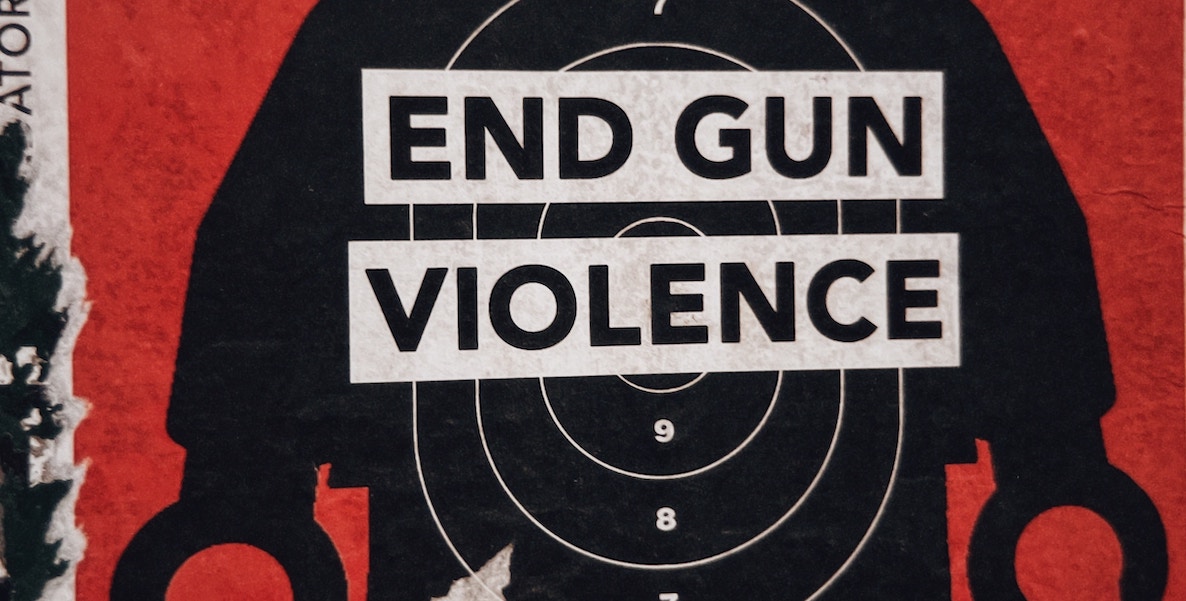The eve of July 4th, 2023 saw another terrifying example of gun violence in Philadelphia. In Southwest Philadelphia‘s Kingsessing neighborhood, an armed citizen killed four adults and one child, and injured two more children.
The since-detained alleged culprit: a 40-year-old wearing a bulletproof vest and wielding an AR-style assault rifle and a handgun. Gun violence in this city (and country) seems out of control.
There have already been 212 homicides in Philadelphia this year, and 744 nonfatal shootings — putting us on track to surpass last year’s record count. Countless lives — their families, friends, neighbors, teachers — have been traumatized. The city sits in fear — and frustration.It doesn’t have to be this way.
Look at Camden and Newark, NJ. And Chester. Those are all cities — gritty, poor, struggling cities — that have cut their gun violence rates significantly. Oakland, CA reduced shootings by half.
Solving gun violence does not require jailing half the population. Nor does it take police reform off the table. There is no magic formula.
It is hard, and it takes that most elusive of skills in Philadelphia: Collaboration. Collaboration among every branch of government, every criminal justice and social service agency, every community group, and the mayor. We must hope that last night — and the 200-some other days and nights that came before it — cements our next mayor‘s commitment to collaboration. If we’re going to turn this city around, we’re going to need someone at the top who’s rolling up sleeves — and reaching out hands.
Here are things Philadelphia can do to help solve gun violence.
Here, seven gun violence solutions with proven results
1. Enact robust focussed deterrence citywide
A 2014 pilot in Philly found what has been proven around the country: The Mayor’s Office led sustained, deliberate program involving data, pointed policing, social services, violence interruption and regular communication among partners prevents shootings before they happen.
Oakland and Chester — among others — have used a form of Focussed Deterrence (also called Ceasefire) to reduce shootings in their cities.
2. Support short-term violence intervention, not just long-term prevention
Former City Controller Rebecca Rhynhart showed in an audit last summer, just 17 percent of the City’s $208 million in anti-violence spending is going towards intervention efforts to reduce violence over the next one to three years. Most of the rest is to support longer-term programs to steer young people away from violence. We can’t wait that long.
3. Expand evidence-based skills training programs that reduce violence
In Chicago, former Education Secretary Arne Duncan launched CRED, which works to interrupt violence in real-time; pays participants to attend counseling, high school classes and job training for nine to 18 months; then helps place them in jobs at one of 40 different Chicago companies.
CRED cut shootings in Chicago’s Southside by 33 percent — while it spiked elsewhere. In Philly, PowerCorpsPHL is successfully doing this work, but needs more resources to reach the volume of people to make a real impact. The City is launching a pilot of another Chicago program, READI, an evidence-based program that — like CRED — connects young men most at risk for experiencing gun violence with job training and social services. According to the Controller’s Office, that pilot got $2 million from the City.
We can do better.
4. Reform policing …
In Newark and Camden, gun violence has plummeted at the same time as policing has changed. In Camden, a state takeover of the department forced a new way to think about the way officers patrol and how they partner with residents, which has led to more trust and to more arrests. In Newark, Mayor Ras Baraka has empowered Aqeela Sherrills’ Newark Community Streets Team to work alongside — sometimes instead of — officers to keep the peace in neighborhoods, which even the police department says has helped stem the violence.
5. … but also do responsible policing and prosecution
Less than half of all shootings result in an arrest. Put another way, at least half the time in Philly you can literally get away with murder. At the same time, despite doubling the number of arrests, the conviction rate for illegally possessing a firearm has plummeted. Meanwhile, the people who live in the most violent neighborhoods — mostly Black and Brown families — are the ones most clamoring for increased police presence. It’s not a progressively popular sentiment, but neither is rampant gun violence.
6. Invest in public spaces
Sometimes, it’s not about guns, or even the people using them. It’s about built environment, designing and redesigning streets, crosswalks, parking lots, parks, so it’s hard for shooters to hide or drive through. Portland, Oregon’s Mt. Scott-Arleta neighborhood closed a slip lane, installed traffic barrels, reduced trash, increased trees, and blocked off a parking lot. Then, it activated community spaces and found funding to repair homes.
Crime went down. Quality of life went up.
7. Teach young men to think more clearly
We’ve all heard the statistics: Most gun violence is impulsive, over petty beefs: You looked at my girl. You crossed the wrong street. I’m gonna shoot you.
What if we could work with impulsive thinkers, typically young men, to help reconfigure how they think, to teach them to take a beat before acting, to consider what they should do before they do it? That moment could be the difference between life and death, incarceration and freedom.
A Boston-born program called ROCA takes mentorship to the next level, picking out “at-risk” kids and relentlessly encouraging them to join in, then sticking with them no matter what. It’s a heavy lift. It’s a deep dive. A serious commitment — not at all a quick fix. But it does change minds, often permanently.
![]()
MORE COVERAGE OF GUN VIOLENCE SOLUTIONS
By Jon Tyson for Unsplash.



